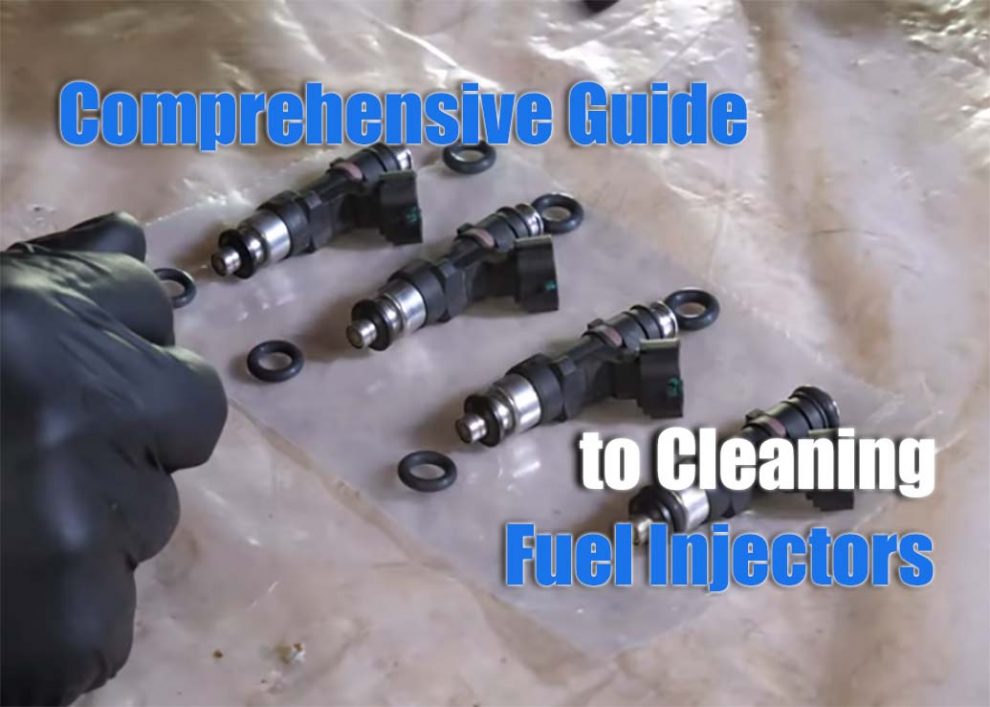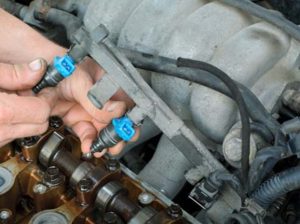Fuel injectors play a pivotal role in modern combustion engines, spraying an exact amount of fuel into the combustion chamber to guarantee efficient burning. Their precision is a determinant of whether your vehicle runs smoothly and efficiently. Like any mechanical component, fuel injectors demand regular attention and maintenance. Residues from fuel can lead to a gradual build-up, impacting their functionality. To ensure your vehicle operates at peak performance, cleaning these injectors isn’t merely advisable; it’s vital. When injectors are free of obstructions, they ensure optimal fuel combustion, providing better fuel efficiency and reduced emissions.
Symptoms of Clogged Fuel Injectors
To maintain the health of your vehicle’s engine, it’s crucial to identify signs that might indicate your fuel injectors are clogged. Some evident symptoms to be aware of include rough idling, hindered acceleration, a noticeable decrease in fuel efficiency, engine misfires, and increased emissions. Such issues often stem from a disrupted fuel supply to the engine due to injector blockages. By familiarizing oneself with these signs, addressing the primary question of “how do i clean my fuel injectors” becomes a proactive rather than reactive approach.
Gathering Essential Materials for Cleaning
Embarking on the cleaning process necessitates the right tools and materials. Preparation is key to ensuring a smooth cleaning process. A comprehensive list to consider includes:
-
 A specially formulated fuel injector cleaner solution
A specially formulated fuel injector cleaner solution -
A fuel injector cleaning kit containing hoses, fittings, and a canister
-
Standard hand tools like a wrench and screwdriver
-
Safety equipment, including gloves and protective goggles
-
A cleaning cloth or rag for any incidental spills and cleanup
Step-by-Step Guide to Cleaning Fuel Injectors
-
Vehicle Preparation: Position the vehicle in a well-ventilated area. Ensure the engine is turned off and completely cooled down.
-
Prioritize Safety: Always wear safety gloves and protective goggles. Ensure the workspace is free from open flames or potential ignition sources.
-
Materials at Hand: Have your fuel injector cleaner solution ready. Ensure it’s compatible with your vehicle’s make and model.
-
Disconnect the Fuel Pump: Using the appropriate hand tools, carefully disconnect the fuel pump from the fuel injector. This ensures the cleaning solution flows through the injectors and not the entire fuel system.
-
Connect the Cleaning Kit: Pour the fuel injector cleaning solution into the kit’s canister. Attach the canister to the fuel pressure test port, usually located on the fuel rail.
-
Initiate Cleaning: Start the engine. This will pull the cleaning solution into the injectors, breaking down and removing any residues or obstructions. Allow the engine to run until the entire solution is utilized.
-
Finalize the Process: Once the solution is completely used, turn off the engine. Carefully disconnect the cleaning kit and reconnect the fuel pump.
-
Test the Outcome: Restart the vehicle and monitor its performance. Signs of improved acceleration, smoother idling, and enhanced fuel efficiency indicate a successful cleaning process.
Conclusion
Fuel injectors are essential components that significantly influence a vehicle’s performance and fuel efficiency. Over time, residues and obstructions can build up within these injectors, making regular cleaning a necessity. By following the above step-by-step guide, not only can vehicle owners address the query of “how do i clean my fuel injectors,” but they can also ensure their vehicle operates at its optimal capability. Additionally, for those seeking to further enhance their vehicle’s performance, especially Jeep Patriot owners, exploring options like the Best Cold Air Intake for Jeep Patriot can be a game-changer. Whether you’re a seasoned mechanic or a car enthusiast keen on DIY maintenance and upgrades, consistent care and informed choices can lead to prolonged vehicle longevity, smoother rides, and significant savings in the long run.


 A specially formulated fuel injector cleaner solution
A specially formulated fuel injector cleaner solution
Add Comment